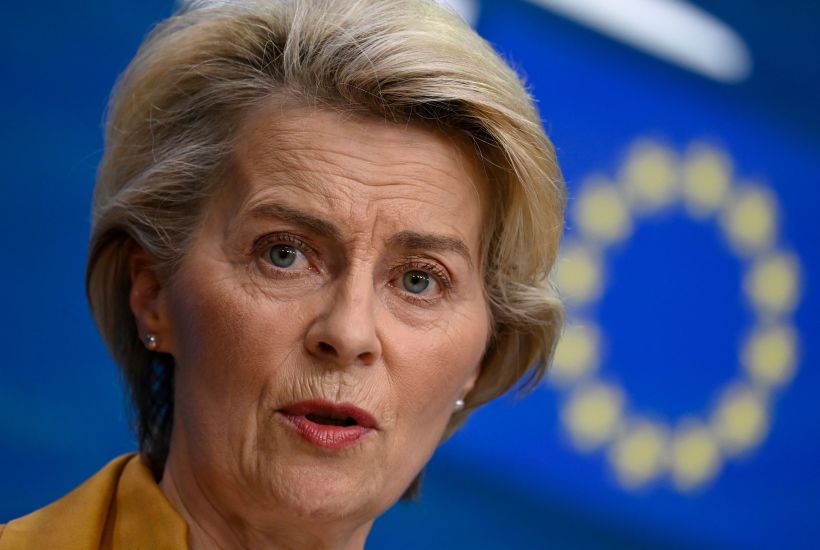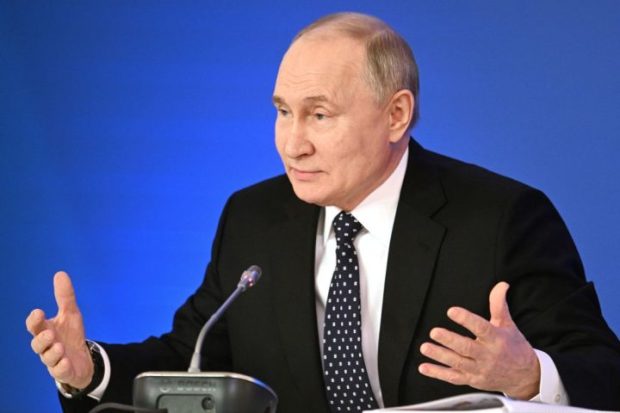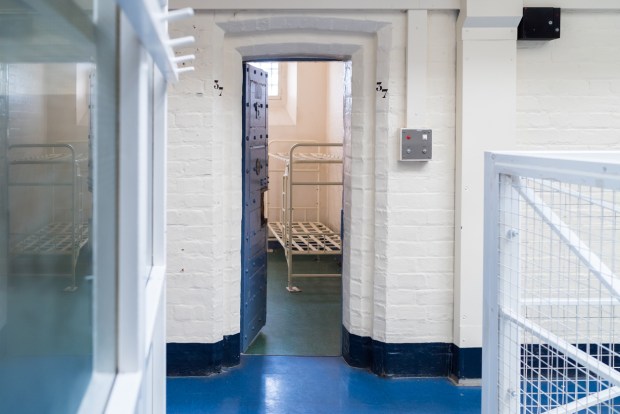If Beijing was in any doubt that its 12-point peace plan for Ukraine has gone down badly in Europe, those doubts can now be put to rest after a punchy speech by Ursula von der Leyen in Brussels yesterday. In perhaps the clearest formulation of the EU’s latest thinking on China so far, von der Leyen put Ukraine front and centre of Europe’s dealings with Beijing, saying that the way China interacts with Russia will be ‘a determining factor for EU-China relations going forward’. As for the peace plan, she accused Beijing’s proposal of being something that would ‘in effect consolidate Russian annexations’.
Von der Leyen will be visiting China next week, together with French President Emmanuel Macron. They are following in the footsteps of the Spanish Prime Minister Pedro Sanchez, who is currently in China. It’s clear the tone between European leaders and Beijing will be far less friendly and pragmatic than in previous years. Today, Sanchez directly urged President Xi to ‘have a conversation’ with Zelensky. (It is curious that the call between Xi and Zelensky has still not happened – did Putin dissuade Xi from going ahead with it in Moscow?). Von der Leyen and Macron will be sure to bring up Ukraine as well when they visit Beijing.
Elsewhere in von der Leyen’s speech, she laid out a firm, considered approach to China which still advocated dialogue with the country while protecting European interests. Critics had been concerned that the EU’s so-called ‘strategic autonomy’ was a fuzzy diplomatic term being used to justify business as usual with Beijing – in fact, the Brussels’s current thinking is much more hawkish.
Fundamentally, Brussels believes that the CCP is trying to recreate the world order ‘with China at its centre’ – an assessment that is hard to deny, even for those who still say that China’s rise is peaceful.
We can expect more protectionism coming down the line when it comes to bilateral trade. Von der Leyen identified certain high-tech areas as ‘risky’, especially in the context of China’s ‘fusion of its military and commercial sectors’, which can turn scientific collaboration on seemingly innocuous areas towards military purposes benefitting the Chinese. So an EU ‘Economic Security Strategy’ will be coming later this year, which will set out more ‘defensive tools’ on critical sectors.
She also confirmed that the Comprehensive Agreement on Investment – a deal between Beijing and Brussels originally agreed in 2020 – will need to be reassessed. It still has not been signed, and it looks like Beijing and Brussels will be going back to the drawing board. ‘The world and China have changed significantly in the last three years’, she said.
Indeed. Just months after the investment deal was initially agreed, Beijing sanctioned dozens of European policymakers and think tankers (including Merics, which hosted von der Leyen’s speech this week), in retaliation for EU sanctions on officials involved in the CCP’s Xinjiang policy. There has also, of course, been a recent global pandemic which spread because of the Chinese government’s negligence (at the very least).
And yet von der Leyen ultimately supports continued dialogue with China. ‘It is neither viable – nor in Europe’s interest – to decouple from China. Our relations are not black or white – and our response cannot be either’. So Brussels says it wants to ‘de-risk’ rather than decouple, ultimately not going as far as some in the West would like. Overall, von der Leyen’s firm but constructive line had remarkable echoes of the British government’s refreshed Integrated Review, which itself advocated engagement while standing up for British interests in the face of an evermore assertive CCP.
As von der Leyen concludes, ‘nothing is inevitable in geopolitics’. The West is still capable of friendly relations with China, even if we are now moving past the age of profit-driven globalisation into a more cautious era. But Europe is making it clear that Ukraine is a sticking point – if China wants to be respected as a global leader, it needs to start acting that way. The first thing Beijing must do is pick up the phone to Kyiv.
Got something to add? Join the discussion and comment below.
Get 10 issues for just $10
Subscribe to The Spectator Australia today for the next 10 magazine issues, plus full online access, for just $10.



















Comments
Don't miss out
Join the conversation with other Spectator Australia readers. Subscribe to leave a comment.
SUBSCRIBEAlready a subscriber? Log in